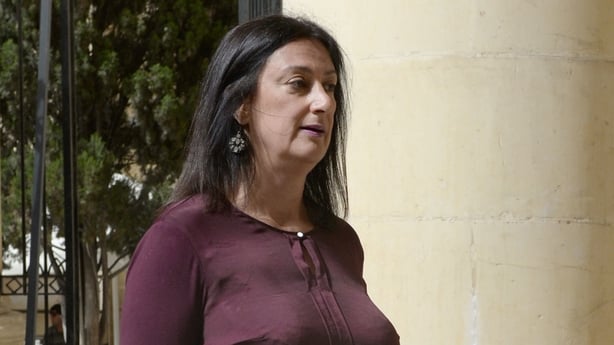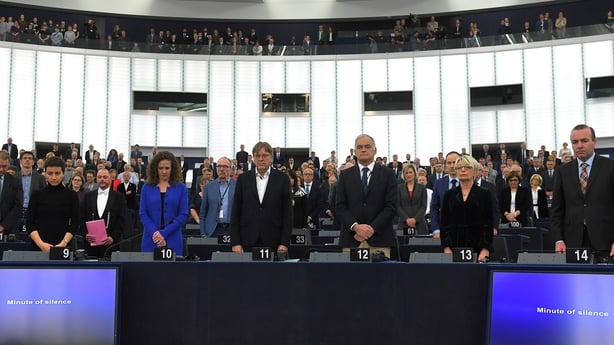Independent MEP Luke 'Ming' Flanagan has raised the issue of garda whistleblowers in the European Parliament, claiming that those who expose wrongdoing are often "mentally destroyed."
MEPs have called on the EU Commission to propose rules to afford more protection to whistleblowers across the EU.
They say whistleblowers acting in the public interest deserve proper protection and support.
Speaking during the debate on the draft resolution, Mr Flanagan said: "Everyone says they are wonderful. Everyone says they are brave. Everyone says they are exceptional.
It's only where we get to a situation where people don't need to be brave to be whistleblowers, where it becomes normal to be a whistleblower. Then we can say we have succeeded.
. @lukeming - If you become a whistleblower in Ireland 'you end up digesting the whistle,unemployed,mentally destroyed’@rtenews pic.twitter.com/n5eY2eOxyZ
— Conor McMorrow (@ConorMcMorrow) October 24, 2017
"At the moment you have to be exceptional because if you become whistleblower in my country, you will be the one ending up digesting the whistle, you will end up unemployed, you will end up mentally destroyed, and I have seen this on so many occasions," Mr Flanagan said.
"We have seen situations in my country where whistleblowers in my police force have had false files of paedophilia put against them, since exposed.
"We have had members of our police force who have had rats hung on their door for exposing wrongdoing. We need to help these people; otherwise, either that or we need to tell them 'keep quiet otherwise your life will be destroyed.'"

Meanwhile, murdered investigative journalist Daphne Caruana Galizia was described as a "courageous woman and outstanding journalist" during a European Parliament debate about the Maltese journalist.
Ms Caruana Galizia’s husband and three sons were applauded when they attended the parliament sitting in Strasbourg, where a minute’s silence was held in her honour.
Frans Timmerman, the European Commission Vice President, said Ms Caruana Galizia was killed by "somebody who wanted to stop her reporting."
He expressed his concern that the brutal murder happened in an EU member state.
Mr Timmerman said an independent investigation into her death is a priority and the EU’s police agencies are there to assist.
He pointed out that last year 72 journalists were killed worldwide and more than 50 have been killed so far this year.
There have been more than 300 threats to journalistic freedom in the EU since the start of the year, according to the Media Freedom campaign. He condemned this development.

He said it is now the duty of the Maltese state to prosecute this case and deliver on their commitment to do everything in their power to bring the perpetrators to justice.
He added: "The murder of a brave journalist is a direct concern for us all."
Italian MEP Gianni Pitella, the leader of the Socialist and Democrat group, said the killing of Ms Caruana Galizia is an "attack on European democracy".
He added, "Whoever carried out this attack is an enemy of Europe."
German Green MEP Sven Giegold described the murder as "a brutal demonstration by those who consider themselves to be above the law."
Dutch liberal MEP Sophia in 't Veld called on the Maltese government to "make sure the murderers do not get away with impunity."
She said that there needs to be clarifications from the Maltese government about the allegations of corruption that she was investigating.
Earlier, European Parliament President Antonio Tajani described the journalist as "a courageous woman" who spared no effort to investigate and discover the truth and facts "without fear or favour."
President Tajani said that throughout her 30-year career, Ms Caruana Galizia "stood upright and was only answerable to her readers."
The European Parliament has decided to name the Strasbourg press room after Ms Caruana Galizia in memory of her journalistic work.

